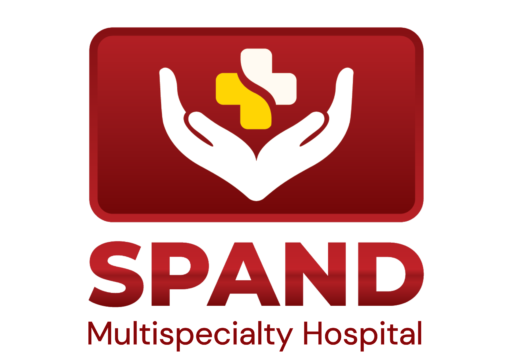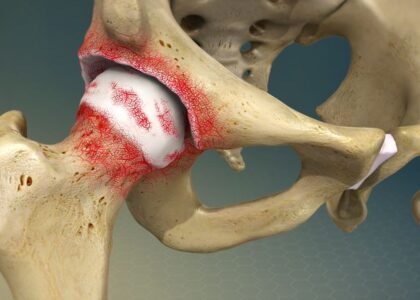Chronic tension headaches are one of the most common types of headaches, characterized by persistent and recurring pain. Unlike occasional tension headaches, chronic tension headaches occur frequently, often lasting for hours or even days, significantly affecting the quality of life. Understanding the types and treatment options for chronic tension headaches is essential for effective management. For individuals in need of specialized care, finding the best neuro hospital in Jamshedpur can make all the difference.
What Are Chronic Tension Headaches?
Chronic tension headaches are a type of headache that occurs for 15 or more days a month over a period of at least three months. They often involve a dull, aching pain or tightness in the forehead, sides, or back of the head. Unlike migraines, they typically do not cause nausea, vomiting, or sensitivity to light and sound. However, the pain and frequency can still be debilitating.
Types of Chronic Tension Headaches
Chronic tension headaches can be categorized into two main types:
- Episodic Tension Headaches:
- Occur less than 15 days a month.
- The pain is often mild to moderate and may last from 30 minutes to several hours.
- Chronic Tension Headaches:
- Occur 15 or more days a month.
- The pain is persistent and often more severe than episodic tension headaches.
- They may lead to significant disruptions in daily activities and work performance.
Causes of Chronic Tension Headaches
The exact cause of chronic tension headaches is not fully understood, but several factors can contribute to their development:
- Stress: Emotional or mental stress is a major trigger for tension headaches.
- Muscle Tension: Tightness in the neck, shoulders, and scalp muscles can lead to chronic pain.
- Poor Posture: Sitting or standing with improper posture can strain neck and shoulder muscles, causing headaches.
- Sleep Disturbances: Lack of sleep or poor-quality sleep is a common contributing factor.
- Dehydration: Insufficient water intake can trigger headaches in some individuals.
- Eyestrain: Prolonged screen time or uncorrected vision problems can lead to tension headaches.
Symptoms of Chronic Tension Headaches
The symptoms of chronic tension headaches include:
- A constant, dull aching pain on both sides of the head.
- Tightness or pressure around the forehead, sides, or back of the head.
- Tenderness in the scalp, neck, and shoulder muscles.
- Difficulty concentrating due to persistent pain.
Also Read: Brain Stroke Symtoms
Chronic Tension Headache Treatment
Managing chronic tension headaches requires a combination of lifestyle changes, medical treatments, and preventive measures. Here are some effective treatment options:
1. Lifestyle Modifications
- Stress Management: Practicing relaxation techniques such as deep breathing, meditation, or yoga can reduce stress and prevent headaches.
- Regular Exercise: Physical activity helps improve blood flow and reduces muscle tension.
- Adequate Sleep: Maintain a consistent sleep schedule and ensure you get 7-8 hours of quality sleep each night.
- Hydration: Drink plenty of water throughout the day to prevent dehydration.
- Ergonomic Adjustments: Use ergonomic furniture and maintain good posture while sitting or working.
2. Medications
- Over-the-Counter Pain Relievers: Medications like ibuprofen or acetaminophen can help alleviate occasional headaches. However, overuse can lead to rebound headaches.
- Prescription Medications: For chronic cases, doctors may prescribe muscle relaxants, antidepressants, or medications to prevent headaches.
- Botox Injections: In some cases, Botox injections may be recommended for tension headache relief.
3. Physical Therapy
- Physical therapy can help address muscle imbalances and improve posture, reducing the frequency of tension headaches.
4. Behavioral Therapy
- Cognitive-behavioral therapy (CBT) can help individuals manage stress and identify headache triggers.
5. Alternative Therapies
- Acupuncture: Involves inserting thin needles into specific points on the body to relieve tension and pain.
- Massage Therapy: Regular massages can help reduce muscle tightness and promote relaxation.
- Aromatherapy: Essential oils like lavender or peppermint can have a calming effect and may reduce headache symptoms.
When to Seek Medical Attention
If chronic tension headaches persist despite lifestyle changes and over-the-counter medications, it is important to seek professional help. A neurologist can evaluate your condition and provide a tailored treatment plan. The best neuro hospital in Jamshedpur offers advanced diagnostic tools and specialized care for individuals dealing with chronic tension headaches and other neurological disorders.
Preventive Tips for Chronic Tension Headaches
- Identify and avoid headache triggers such as stress, dehydration, or poor posture.
- Follow a regular routine for meals, exercise, and sleep.
- Limit screen time and take regular breaks to reduce eyestrain.
- Use relaxation techniques to manage stress effectively.
Conclusion
Chronic tension headaches can significantly impact your quality of life, but with the right treatment and preventive measures, they can be managed effectively. From lifestyle changes to advanced medical care, there are multiple options to reduce the frequency and severity of these headaches. If you’re struggling with chronic tension headaches, don’t hesitate to consult the experts at the best neuro hospital in Jamshedpur for comprehensive care and treatment.
Take the first step toward a pain-free life and prioritize your health today!











